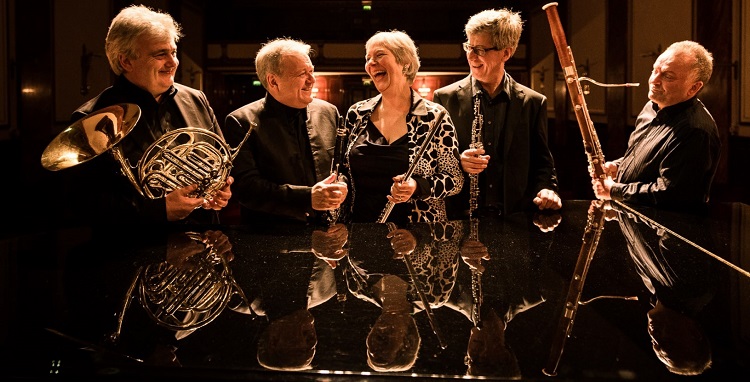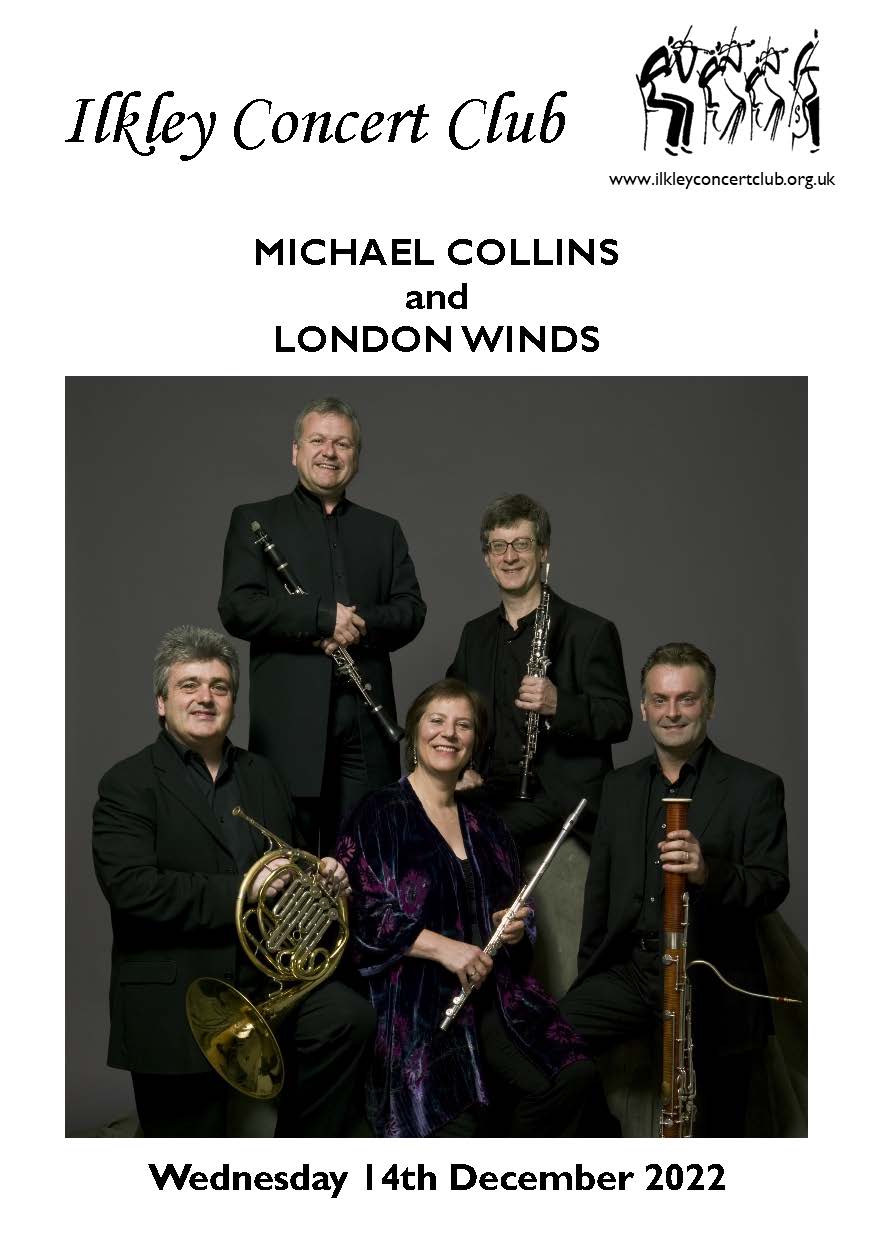REVIEWS
MICHAEL COLLINS and LONDON WINDS

Wednesday 14 December 2022 8pm
Mozart Serenade in C minor, K388/384a
Beethoven Wind octet in E flat major, op 103
Mozart Serenade for 13 winds in B flat major, K361
A finalist in the first ever BBC Young Musician of the Year competition, Michael Collins is now considered to be one of the most complete musicians of his generation. While continuing a distinguished career as a soloist of dazzling virtuosity and sensitive musicianship, he has also become highly regarded as a conductor. In 1988 he founded London Winds, bringing together some of Britain’s finest wind players. The core quintet of the ensemble is enhanced by other eminent players in order to perform the highlight of this concert, Mozart’s Serenade K361 for 13 wind instruments.
Before this we hear two of the masterpieces of the Viennese craze for Harmoniemusik, for pairs of oboes, clarinets, horns and bassoons. Mozart’s serenade is a typically witty piece with a canonic minuet and trio. The Beethoven is an early work, written 10 years later, the year after Mozart’s death.
REVIEW BY Chris Skidmore
A feast of woodwind playing
Last Wednesday was a special night at the Ilkley Concert Club – the first performance at the club this century of one of the greatest pieces of Mozart’s chamber music – the Serenade K361 – otherwise known as the Gran Partita. Michael Collins and his colleagues of London Winds comprised thirteen players – the basic eight members of a wind band or Harmonie (two each of oboes, clarinets, horns and bassoons) were supplemented by two basset horns, two further horns and a contrabassoon. This is a group which clearly enjoys playing together and readily transmits that enthusiasm to the audience.
Mozart’s score gives plenty of room for contrasting effects, often playing the oboes and bassoons off against the clarinets and basset horns. Michael Collins (clarinet) and Gareth Hulse (oboe) made the most of their interlinked solos, especially in the emotional heart of the third movement Adagio against the delicate syncopated accompaniment of the horns and basset horns. Also especially notable were the contrasting sound worlds in the double trios of the two minuet movements and in the variations of the sixth movement.
Before the interval the audience was treated to two wind octets, Beethoven’s only essay in the form and Mozart’s C minor Serenade, written within 10 years of each other. In fact the Beethoven was played in this case as a nonet with Luke Whitehead’s contrabassoon giving extra weight to the bass – a most effective approach! These examples of music for social occasions were both played with great sensitivity but also immense joie de vivre. Articulation and great dynamic range were particular features. The bassoon playing of Jonathan Davies was particularly notable in the agility of his running phrases and a special mention must go to both horn players for some sensationally fast and exact passagework!
This concert was overall a feast of delights for the enthusiastic audience who responded with some of the loudest and most justified applause the Club has experienced in recent seasons.



